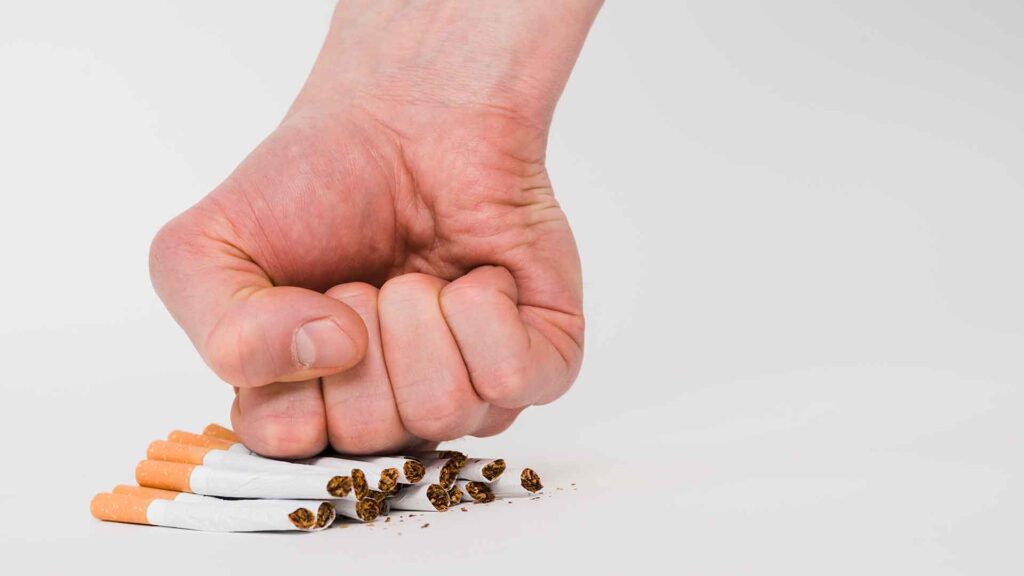
Studies have shown that you’re four times more likely to stop smoking with professional help. If you are looking to quit smoking in Brighton and Hove, Leybourne Pharmacy offers Stop Smoking service.
What this blog post is about?
In this blog post, we look at the harmful effects of smoking, why is it so hard to quit smoking, how to quit smoking, various ways to quit smoking, where to get help and some useful stop-smoking tips.
Harmful effects of smoking
Circulation
Smoking allows poisons from the tar in your cigarettes to enter your blood. These poisons in your blood make your blood thicker, and increase the chances of blood clots, increase your blood pressure and heart rate, narrow your arteries, reducing the amount of oxygen-rich blood circulating to your organs.
Heart
The good news is that after just one year of stopping smoking, the risk of these diseases is reduced by half. After stopping for 15 years, your risk is similar to that of someone who has never smoked.
Stomach
Skin
Smoking can affect your skin by reducing the amount of oxygen that goes there. So the more you smoke, the more quickly your skin ages and looks grey and dull.
Bones
Smoking can cause weakness in your bones and your bones can become brittle. The risk is higher in Women in particular.
Brain
Lungs
People with COPD have difficulties breathing, primarily due to the narrowing of their airways and the destruction of lung tissue. Typical symptoms of COPD include increasing breathlessness when active, a persistent cough with phlegm and frequent chest infections.
Mouth and throat
Reproduction and fertility
For women, smoking can reduce fertility. One study found that smokers were over three times more likely than non-smokers to have taken more than one year to conceive. The study estimated that the fertility of smoking women was 72% of that of non-smokers.
Why quit smoking is so hard?
How to quit smoking?
- thinking about why you smoke
- focusing on how to manage situations in which you used to smoke
- thinking about your reasons for stopping
- setting a quit date
- medication
- support from friends and family
Understanding why you smoke
You might have started smoking in your teens, maybe because your friends smoked, or because you wanted to look grown-up or cool. For others it could be during college or university, starting a job or being in a social circle where everyone smokes. Alternatively, you could have started for no clear reason at all.
Planning
You’re more likely to be successful in your attempts to quit smoking if you plan. This includes preparing and working towards a specific quit date.
Stop Smoking Medicine
Nicotine is addictive, and willpower alone might not be enough. Give yourself a better chance of success by using stop-smoking medication.
Think about what you'll gain by stopping
The desire to stop smoking for good can be a great source of motivation. Make sure you have the right support in place to help you stop successfully. Move from thinking about why you smoke to focusing on becoming a non-smoker.
Stop smoking by hypnosis
During hypnosis for smoking cessation, a patient is often asked to imagine unpleasant outcomes from smoking. For example, the hypnotherapist might suggest that cigarette smoke smells like truck exhaust, or that smoking will leave the patient’s mouth feeling extremely parched.
- Smoking poisons the body
- You need your body to live
- You should respect your body and protect it (to the extent you'd like to live)
The hypnotherapist teaches the smoker self-hypnosis and then asks him or her to repeat these affirmations anytime the desire to smoke occurs.
It can be effective for some people but not for others. Hence it is not the most widely recommended method for stopping smoking.
Quit smoking with vapor
The evidence shows that a combination of pharmacological treatment and behavioural support produces the best result for smoking cessation. However, some smokers may not be able to quit, hence switching to vaping helps them quit. If asked about vaping, healthcare professionals can explain that it is not an approved or recommended method of smoking cessation, but it may help smokers to quit if other attempts have failed, and will be less harmful to their health than continuing smoking.
Quit smoking cold turkey
Read more about the topic here on everyday health.
How long does it take to quit smoking
Read the top 10 self-help tips to stop smoking from NHS.
How long does it take to quit smoking
It depends on everyone’s circumstances and willpower. It could be anything from a few months to many years. The key is to be always mindful of the fact that you have decided to be smoke-free and resist the temptations whenever they arise.
Other places where you can get help with stop smoking can be found from this NHS link.




